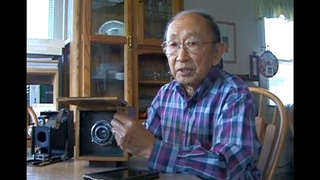Entrevistas
Photographing the movement
Now in terms of myself, and the images I took of the movement, is in retrospect, in looking back, I think the best work I did was of the people. Because I wanted, I loved it. I loved the delta. It was beautiful to me. It was like the land I knew growing up. And there was a kind of visual integrity to it all. The soil, the share croppers shack which didn't seem man built, but as kind of extensions of the ecological framework. And the people themselves. They seemed to have grown from the soil. And I wanted to pay homage to that life. To their courage, to their wisdom. Because you know, they were the heroes. They fed us, they housed us. They protected us. They went to vote. All these simple little acts could have cost them their jobs, their livelihood. Their land. Their families. And their own lives. Did you realize the amount of courage that required for them to do that? Because we're outside agitators in a sense. We're not going away, but essentially, we're outsiders. And we can and did, in fact, go back to our own lives. But their Mississippians. That's their reality. They got to stay there and pay their dues. They've got to face and incredible violence that is Mississippi.
So I had a great time. I mean, I loved my images of life in the Delta. A little communities around SNCC. Of Southwest Georgia. I loved the little kids who are playing Superman. I loved the beaming face of the share cropper woman. I mean, she's gorgeous. I love the picture of this guy with this pan. And he's just looking at them. I love the picture of this guy peeking in and saying, “What is freedom? Freedom now. What is that?” Looking in. Or hog killing time on the Delta. Beautiful. Beautiful pictures. So my imagery is really more of that. I shot the movement. I shot the people in this great drama. But really, the gist of my work is with that. With the people.
Fecha: February 9, 2011
Zona: California, US
Entrevista: Patricia Wakida, John Esaki
País: Watase Media Arts Center, Japanese American National Museum



